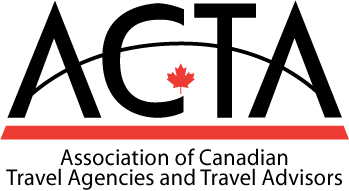Seeks Passenger Rights Bill
www.blacklocks.ca
Cabinet should enact an air passenger bill of rights similar to international codes that guarantee travelers thousands of dollars in compensation for poor service, says a former Transport Canada advisor. Regulators note Canada is one of the few industrialized countries without statutory compensation for air passengers.
“They do not know what their rights are, and they’re almost at the mercy of the service provider,” said Duncan Dee, former advisor to the Canada Transportation Act Review Panel; “We should look at harmonization of the rules.”
The last Parliament twice rejected private bills for a passenger rights bill. The Review Panel in a February 25 report Pathways: Connecting Canada’s Transportation System To The World endorsed a bill “as harmonized as possible with those of the U.S. and the European Union”. Airlines should also be compelled to disclose information on the number of passengers denied boarding, number of flight delays and lost baggage rates, Pathways said.
Testifying at the Commons transport committee, Dee said domestic flyers are at a disadvantage. “Canadians consumers traveling to a jurisdiction with a so-called passenger bill of rights benefit from those so-called rights, while somebody traveling within two domestic points in Canada would not be covered by that,” said Dee.
U.S. Department of Transportation regulations promise compensation of up to CD$1,700 for denial of boarding, and payment of “reasonable expenses” for lost luggage. European Union rules offer compensation of up to $800 for cancelled flights; and up to $1,800 for lost or damaged luggage.
“We all have constituents who have faced problems at the airport,” said Liberal MP Peter Fragiskatos (London North Centre, Ont.). “In some cases, very serious problems: lost bags, they’re bumped from flights, there are significant tarmac delays.”
Liberal MP Vance Badawey (Niagara Centre, Ont.) said the nation’s current complaints-based system that sends travelers to the Canadian Transportation Agency is insufficient. “A lot of passengers don’t know what their rights are,” said Badawey. “Do you think it’s imminent – as well as it should be a priority for the airline industry – to actually be a bit more forthright?”
Replied Dee, “The one thing we heard very clearly from consumers and users is the imbalance where, when things like this happen, they do not know what their rights are.”
The Transportation Agency in a confidential report earlier obtained through Access To Information concluded it hears only a fraction of complaints, and has no data on airlines’ on-time performance, lost luggage and over-booking. “Very few publicly-available level of service indicators – government or private sector – are available in Canada,” said the 2014 report Assessment Of Air Passenger Level Of Service Indicators In Canada.
Assessment noted WestJet and Air Canada carry more than 40 million passengers a year, while regulators hear of complaints in the hundreds. “The U.S. Department of Transportation estimates that for every complaint they receive, the air carriers receive around 50,” said the report; “Applying the same ratio to Canada results in an estimate of approximately 40,000 complaints” annually.
